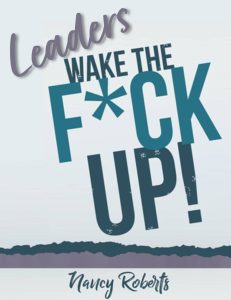Back in 2008, I was asked to speak at a CEO Summit in Boston on the topic of my then new book “The Little Red Book of Hiring & Firing.” After I shared how I help companies hire the right people, we turned to the often-difficult topic of firing.
I posed the question, “How many of you currently have a bottom performer in your organization that you know, beyond a shadow of a doubt, shouldn’t be there?”
Almost every single hand went up.
If that wasn’t bad enough, I then requested “Please keep your hand up if that bottom performer has been there longer than a year.”
Most every hand stayed up.
“Please keep your hand up if that bottom performer has been there longer than 5 years.”
Surprisingly, quite a few hands remained raised.
This kept going until we were at 20+ years and one poor soul still had their hand up.
Before we get too “judgy,” remember that letting go of people who aren’t meeting expectations is one of the hardest things managers and business owners have to do. How do we know?
A recent online survey indicated that almost 70% of respondents felt that it is difficulor impossible to confront and successfully resolve conflict in their workplace.
What aren’t we talking about?
Here’s the breakdown:
- Behavior – 30%
- Expectations – 27%
- Performance – 12%
- Differing Opinions – 10%
- Policies – 9% Personal
- Issues – 5%
We can likely group those first three categories (behavior, expectations, and performance) under the umbrella of “low performance,” and notice, it equals 69% of the respondents.
Furthermore, 93% of the total respondents said that it has affected the quality of their work. Think about that! Avoiding difficult conversations in the workplace negatively impacts not just the underperformers, but the managers as well.
As we pointed out in a past article, it seems as if Leaders need to get better at having the hard conversations.
EASIER DIFFICULT CONVERSATIONS
In personal development circles, there is a model that is the foundation of human interaction that can help us.

To make sense of events, we tell ourselves a story. Sometimes these stories are accurate, sometimes they are not.
The problem is, unfortunately, these stories are often negative. And it’s these negative and untrue stories that create our avoidance of difficult conversations.
Think of the last time you were faced with having a difficult performance conversation but avoided it. Which of these did you ask yourself?
- What if the person gets combative and emotional?
- What if they can turn it around?
- What if I haven’t given them what they need?
- Maybe it’s my fault. What if the person I fire becomes litigious?
- What if the next person I hire is worse?
Notice that all of these questions are actually assumptions that, unless you’ve seen or heard the person act that way in the past, are all just fear-based stories about what could happen.
And then we take that assumption and apply it to the future as if we can predict exactly how they are going to react.
In our next article, we explore how this keeps happening in a vicious cycle and is at the root of almost all avoidance of performance discussions.
~ DISC Wizard





